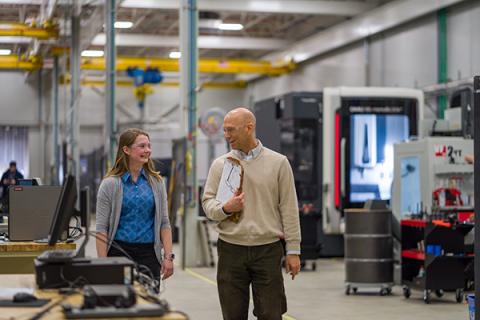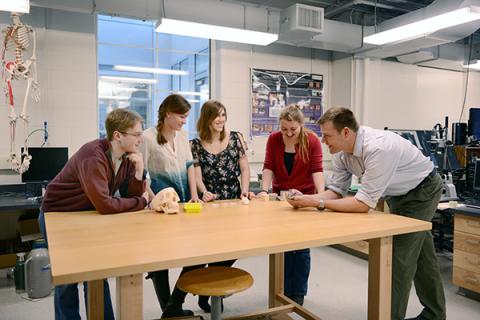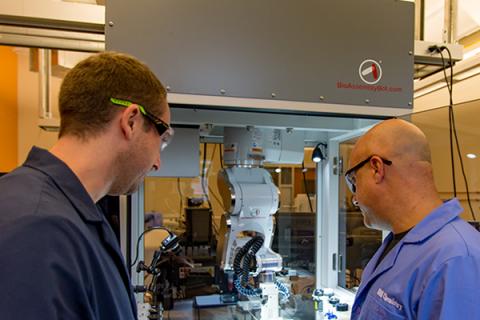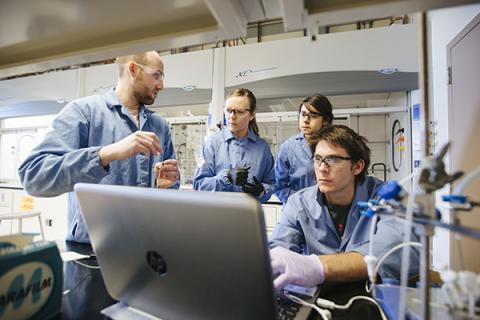
Dr. Brad Kinsey
UNH Department of Mechanical Engineering
Dr. Ian Baker
Dartmouth College Thayer School
Currently available metallic bio-implants required for trauma fixation hardware and surgical repair of severely fractured bones have functional and aesthetic limitations, and conflicting requirements of strength, lightweight, and anatomy-appropriate geometry. Current designs fail to meet these requirements, with failure rates over 15% in critical structures such as the jaw. Orthopedic trauma hardware is either machined or cast and thus is energy, time and cost-intensive to produce. Localized forming would allow for a hardened and thinner biomaterial with the required high strength and shape. NH BioMade is developing new approaches to improve the formability and strength of metallic bio-implants while decreasing the weight of the implant, with the prospect of rapid prototyping for patient-specific components.
Hypothesis:
Increased formability is exhibited by metallic alloys during non-linear deformation by locally controlling the dislocation behavior at the nanoscale, which creates a heterogeneous biomaterial in terms of strength and geometry.
Intellectual Merit/Novelty:
- Integrated processing-characterization-size sensitive modeling and experimentation
- HPC allows the use of 106 elements as opposed to 104 elements achieving product scale simulations
- Relationships between formability and microscale grain boundary and twin boundary interactions with dislocations
- Heterogeneous, metallic biomaterials with complex geometries and superior properties, i.e., lightweight and high strength



